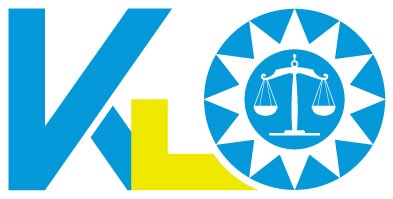Best Communications & Media Law Lawyers in Japan
Share your needs with us, get contacted by law firms.
Free. Takes 2 min.
Or refine your search by selecting a city:
List of the best lawyers in Japan
About Communications & Media Law in Japan
Communications & Media Law in Japan governs the legal aspects of communications, broadcasting, advertising, and other media-related activities in the country. It covers various issues such as freedom of speech, defamation, intellectual property rights, privacy rights, and copyright protection in the digital age.
Why You May Need a Lawyer
You may need a lawyer specializing in Communications & Media Law if you are facing issues such as defamation lawsuits, copyright infringement claims, content licensing disputes, regulatory compliance, or media-related contracts. A lawyer can help navigate the complex legal landscape and protect your rights in these situations.
Local Laws Overview
Key aspects of Communications & Media Law in Japan include the Broadcasting Act, which regulates radio and television broadcasting, the Act on the Protection of Personal Information, which safeguards individuals' privacy rights, and the Copyright Act, which protects intellectual property rights in media content.
Frequently Asked Questions
1. What is considered defamation in Japan?
In Japan, defamation is the act of making false statements that harm a person's reputation. It can be both a criminal offense and a civil tort, with penalties including fines and damages.
2. How are intellectual property rights protected in Japan?
Intellectual property rights in Japan are protected through the Copyright Act, Patent Act, and Trademark Act, which grant creators exclusive rights to their creative works, inventions, and branding.
3. Can I use copyrighted material in my media content without permission?
Using copyrighted material without permission can constitute copyright infringement. It is advisable to obtain permission or license the material to avoid legal consequences.
4. What is the regulatory framework for advertising in Japan?
Advertising in Japan is regulated by the Act against Unjustifiable Premiums and Misleading Representations, which prohibits false or misleading advertisements that deceive consumers.
5. How can I protect my privacy rights in the digital age?
You can protect your privacy rights in Japan by being aware of the Act on the Protection of Personal Information, which sets guidelines for the collection, use, and disclosure of personal data by businesses and organizations.
6. What are the restrictions on freedom of speech in Japan?
While Japan recognizes freedom of speech as a fundamental right, there are limitations on speech that incites violence, spreads hate speech, or defames others. It is important to be mindful of these restrictions.
7. How can I resolve disputes related to media content licensing?
Disputes related to media content licensing can be resolved through negotiation, mediation, or litigation. A lawyer specializing in Communications & Media Law can assist in finding a resolution that protects your interests.
8. What are the penalties for violating communications regulations in Japan?
Violating communications regulations in Japan can result in fines, penalties, or even criminal charges, depending on the severity of the offense. It is essential to comply with the laws to avoid legal consequences.
9. Can journalists protect their sources in Japan?
Journalists in Japan have a legal right to protect their sources under the Act on the Protection of Sources in Journalism. This law allows journalists to safeguard the confidentiality of their sources to uphold freedom of the press.
10. How do I ensure compliance with media regulations when launching a new media venture in Japan?
When launching a new media venture in Japan, it is crucial to seek legal advice to ensure compliance with relevant regulations, such as broadcasting laws, content licensing requirements, and advertising standards. A lawyer can help navigate these legal issues.
Additional Resources
For more information on Communications & Media Law in Japan, you can refer to the Ministry of Internal Affairs and Communications, the Japan Broadcasting Corporation (NHK), and the Japan Intellectual Property Association. These resources can provide valuable insights and guidance on legal matters related to communications and media.
Next Steps
If you require legal assistance in Communications & Media Law in Japan, it is recommended to consult with a qualified lawyer who specializes in this field. They can offer expert advice, representation in legal proceedings, and help you protect your rights in media-related matters. Be sure to research and choose a lawyer with experience and expertise in Communications & Media Law to ensure the best possible outcome for your case.
Lawzana helps you find the best lawyers and law firms in Japan through a curated and pre-screened list of qualified legal professionals. Our platform offers rankings and detailed profiles of attorneys and law firms, allowing you to compare based on practice areas, including Communications & Media Law, experience, and client feedback.
Each profile includes a description of the firm's areas of practice, client reviews, team members and partners, year of establishment, spoken languages, office locations, contact information, social media presence, and any published articles or resources. Most firms on our platform speak English and are experienced in both local and international legal matters.
Get a quote from top-rated law firms in Japan — quickly, securely, and without unnecessary hassle.
Disclaimer:
The information provided on this page is for general informational purposes only and does not constitute legal advice. While we strive to ensure the accuracy and relevance of the content, legal information may change over time, and interpretations of the law can vary. You should always consult with a qualified legal professional for advice specific to your situation.
We disclaim all liability for actions taken or not taken based on the content of this page. If you believe any information is incorrect or outdated, please contact us, and we will review and update it where appropriate.
Browse communications & media law law firms by city in Japan
Refine your search by selecting a city.














